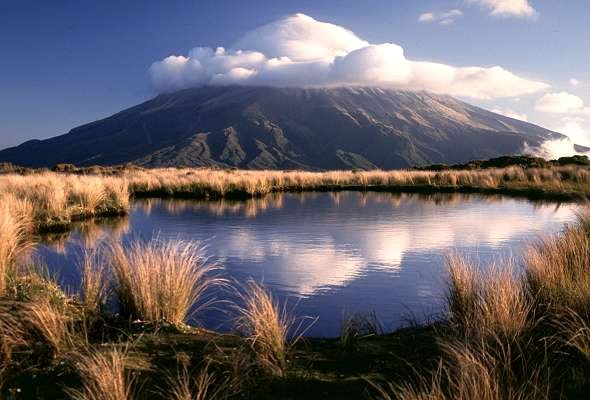Extreme Natural Events can impact people in a number of ways. Businesses can be closed, infrastructure can be destroyed. Local schools and hospitals may be damaged and people may get injured or even be killed. These impacts can be categorised as impacts on economic activities (things relating to the economy and business) and social activities (things relating to people and families).
ECONOMIC EFFECTS
Negative Effects on Economic Activities
1. Property damage – millions of dollars
EG. The Mt Ruapehu eruption in 1995 cost NZ $130,000,000 in damage to infrastructure, property and tourism.
2. Tourism decreases
EG. After the Mt Ruapehu eruption in 1995 Napier and Gisborne airports closed due to the ash clouds. It was too dangerous for planes to fly around these flight paths. This cost meant that business was lost. On Mt Ruapehu, the Turoa ski field and other fields were closed causing many jobs to be lost. This meant that people were unable to support their families and had to move away from the area. Even after the eruption, millions of dollars were lost in tourism as tourists decided to spend their tourist dollars in ‘safer’ areas.
3. Farm land destroyed by lahars, ash and pumice
4. Pastures, stock and crops are damaged from ash covering
EG. After the Mt Ruapehu eruption in 1995 farmers lost stock after they drank ash contaminated water; and in Gisborne 2000 ewes and lambs died from eating ash covered grass.
5. Vehicles are damaged from ash particles in the atmosphere
EG. Ash from the Mt Ruapehu eruption in 1995 damaged vehicles driving along the desert road. Radiators were damaged as the ash entered vehicle engines. This impacted the transportation companies as they had to travel on different routes to avoid the ash. Aeroplanes were also checked rigorously meaning more man hours for airline companies.
6. Flooding of areas make them inaccessible and unusable
Positive Effects on Economic Activities
1. Soil becomes suitable for forestry
EG. Volcanic Plateau
2. Geothermal steam is used to generate electricity
EG. Wairakei
3. New tourist attractions are created
EG. Mt Tarawera
4. A chance to build the economy and infrastructure
5. The creation of employment to rebuild area
6. Ash makes soil more fertile for farming
EG. Taranaki region, but not around Mt Ruapehu
7. Pumice added to soil can increase drainage
8. Volcanic rock is formed which can be quarried and used in road construction
9. Volcanic Cones in high altitude areas with snowfalls can be used as ski fields.
SOCIAL ACTIVITIES
Negative effects on Social Activities
1. Injuries and a loss of lives
EG. Fortunately during the Mt Ruapehu eruption of 1995, no lives were lost. This was due to excellent warning systems from Civil Defence and people having enough time to prepare and evacuate hazardous areas.
2. People are emotionally and physically stressed by the disaster and the loss it has caused
3. People’s homes and property are damaged or destroyed.
EG. Roofs of houses were covered in ash which caused erosion in towns like Ohakune. Local residents’ gardens were burnt by ash.
4. Water supplies can be contaminated
EG. Water supplies around Mt Ruapehu were contaminated. People were instructed to boil water or drink bottled water trucked in from Taupo.
Positive effects on Social Activities
1. The community works together
EG. Maori tribes in the BOP and Coromandel offered tribes affected by the Tarawera eruption, some of their land
2. Families work together and appreciate each other




No comments:
Post a Comment